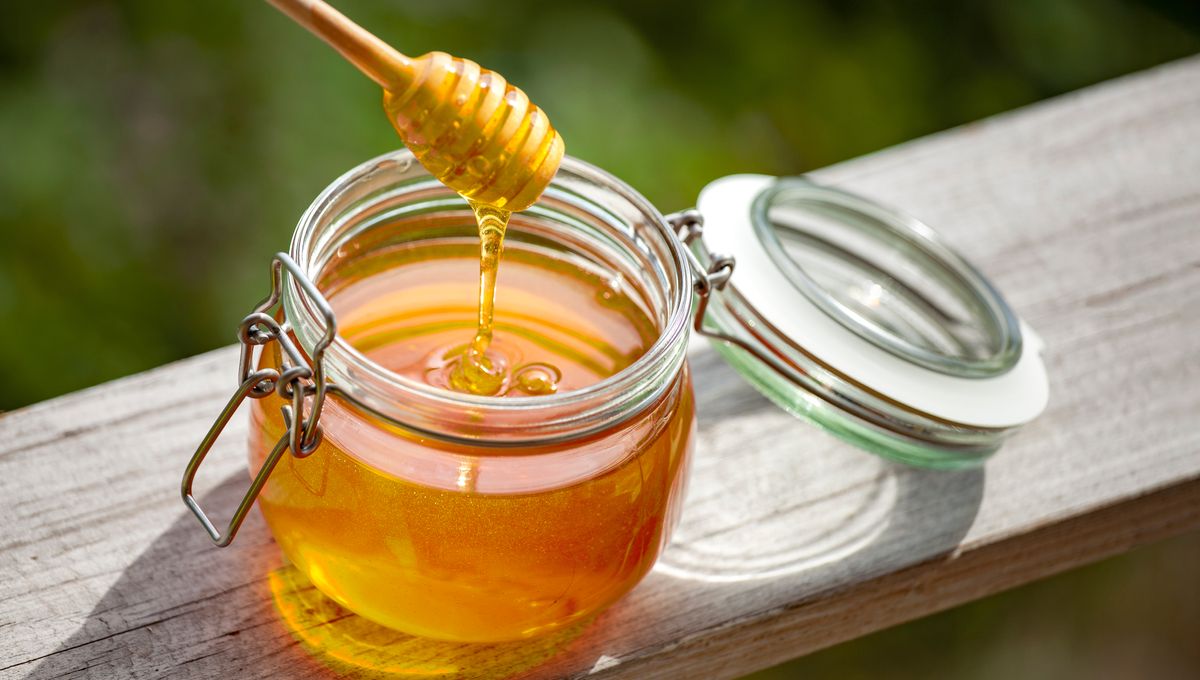
If you grab a jar of honey out of the kitchen cupboard (or your jar of royal honey out of the bedside table), you’ll be able to see an expiration date stamped across the packaging. But does honey ever really “expire”? And if not, why?
The components that make up honey are, crucially, nothing to do with bee vomit. In fact, despite being made up of at least 181 substances, honey is essentially just mostly sugar and water. While its exact composition differs depending on bee species, plants, and even weather, the inclusion of gluconic acid and other organic acids makes honey – you guessed it – acidic. As well as being mildly acidic, honey also has antibacterial properties which help prevent the growth of bacteria.
So, the answer to the question “does honey ever go bad?” is no, not really. As long as you store your honey in the right conditions, it can remain delicious for a very very long time. Honey’s unique ability to stand the test of time has made it a popular ingredient for centuries, with records of it being used as far back as 5500 BCE.
What makes honey last?
Honey is produced in the bee’s honey sac, or honey stomach, and it gets its flavor from the type of flower the nectar is collected from. The honey sac is a specialized organ that works as a store for nectar or water, enabling the bee to safely transport it back to the hive. Once home, the bee will regurgitate the nectar in a process called trophallaxis, and begin adding sugar-inverting enzymes to the nectar to create honey.
As bees add the enzyme glucose oxidase to the nectar, which converts sugar into gluconic acid, hydrogen peroxide is also produced. The presence of hydrogen peroxide – a chemical that is also used to clean wounds, although that is no longer recommended – contributes to the antibacterial properties of honey. Today, medical-grade honey is even used to treat drug-resistant bacterial infections.
This unique composition, and comparatively low water content, is what makes honey impervious to the growth of bacteria and fungi. Its high sugar content (honey has a carbohydrate content of around 80 percent) increases the osmotic pressure of honey, causing water to be drawn out of microbe cells, halting their growth and reproduction. Additionally, the low water content prevents fermentation and breakdown of the honey.
While it has been thought that honey’s acidity, with an average pH of 3.9, contributed to its longevity, studies comparing honey with low and high acidity levels found no significant difference in antimicrobial activity.
Can honey ever go off?
While the expiration date you see on the packaging of honey is largely there as a manufacturing requirement and to help keep track of produce, there are still a few ways honey can turn against you.
Avoiding moisture is the key to keeping your honey in good shape. Always store it in an air-tight container in a dry area to prevent contact with moisture that could allow microorganisms to multiply.
Additionally, as honey is a natural product, there is always a slight risk of contamination from dust, dirt, and the bees’ digestive tract. However, these contaminants are generally found in very low quantities and the composition of honey should prevent any growth of bacteria from contaminants.
Honey can also be considered toxic if the pollen has been collected from flowers containing plant toxins. “Mad honey” is made from the nectar of rhododendrons and, despite claims of having medicinal properties, can cause nausea, hallucinations, and even death if consumed in high quantities.
But while the risk factors surrounding consuming old honey remain very low, it’s likely you will see your honey crystalize at some point. Crystallization in honey happens as the sugar and water separate, and the process is sped up when the honey is kept at colder temperatures. Crystalized honey will appear paler, opaque, and harder than regular honey. It also releases more water during the crystallization process, slightly increasing the risk of fermentation.
So, as long as you take good care of your honey, it could potentially outlive you – so better start considering who gets the honey inheritance.
All “explainer” articles are confirmed by fact checkers to be correct at time of publishing. Text, images, and links may be edited, removed, or added to at a later date to keep information current.
The content of this article is not intended to be a substitute for professional medical advice, diagnosis, or treatment. Always seek the advice of qualified health providers with questions you may have regarding medical conditions.
Source Link: Does Honey Go Bad?